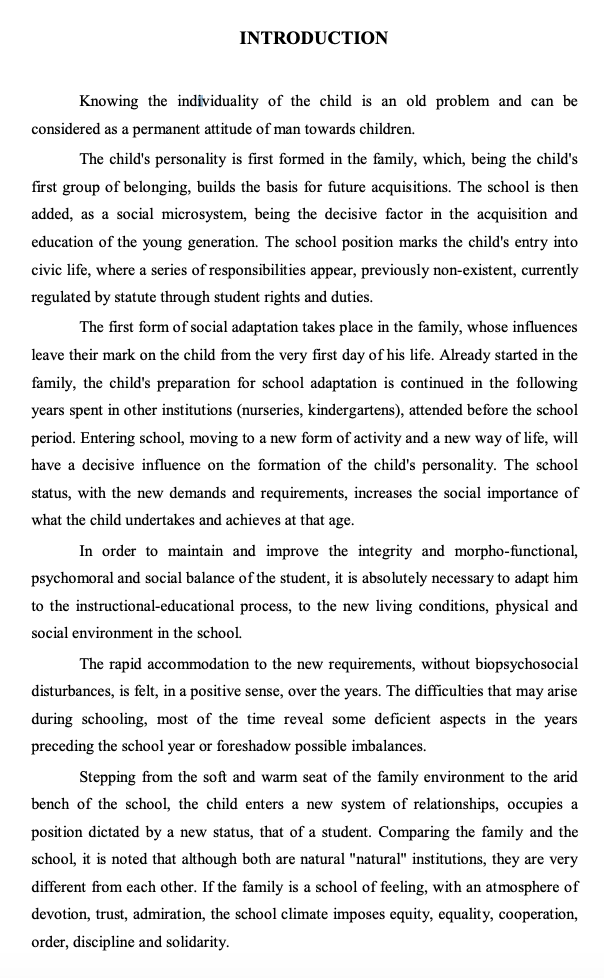Psychosocial Factors in School Success or Failure
Summary:
The research delves into the intricate relationships between psychosocial factors and students’ adaptation to school environments. It emphasizes that a child’s early life in the family sets the groundwork for later academic and social adaptation, as schools introduce new norms, responsibilities, and challenges that further shape the child’s personality. The research comprises four main chapters. The first chapter focuses on theoretical considerations, presenting the school as a key framework for academic success and discussing factors that facilitate or hinder school adaptation. The second chapter outlines the methodological aspects of two separate research studies. These studies were conducted at the General School “OVID DENSUSIANU” Haţeg, focusing on two groups of 7th-grade students with different academic performance levels.
The third chapter provides a comprehensive data analysis, confirming the hypothesis that intelligence is critical in determining academic success or failure. External factors like family environment and school also have a significant impact. The fourth chapter concludes by validating three hypotheses regarding the role of psychosocial factors, including the influence of family circumstances like the parental model, cultural environment, and material conditions on a child’s academic performance and behaviour in school.
The research underscores that school adaptation is a complex interplay of internal and external factors. It also stresses the importance of understanding these psychosocial elements for preventing school failure and ensuring every student’s success according to individual capabilities.
Excerpt:
Psychosocial Factors in School Success or Failure
INTRODUCTION
Knowing the individuality of the child is an old problem and can be considered as a permanent attitude of man towards children.
The child’s personality is first formed in the family, which, being the child’s first group of belonging, builds the basis for future acquisitions. The school is then added, as a social microsystem, being the decisive factor in the acquisition and education of the young generation. The school position marks the child’s entry into civic life, where a series of responsibilities appear, previously non-existent, currently regulated by statute through student rights and duties.


Reviews